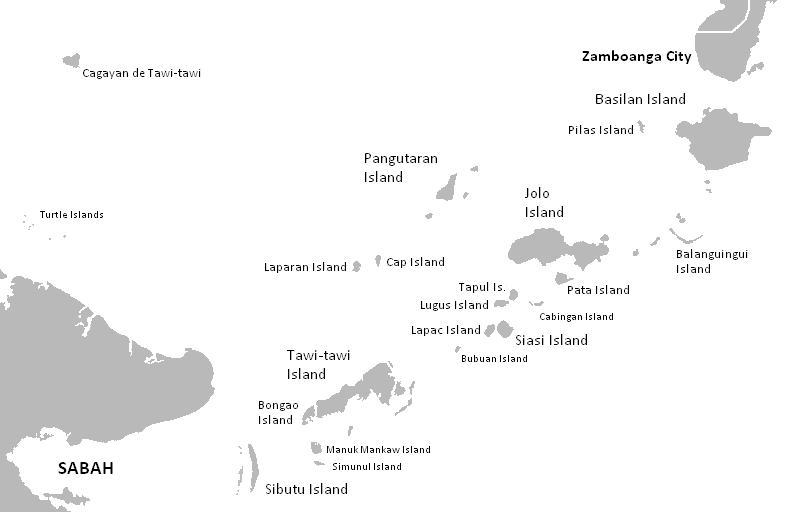|
Sanmalan
The polity of Sanmalan is a precolonial Philippine state centered on what is now Zamboanga.Reading Song-Ming Records on the Pre-colonial History of the Philippines By Kansai University The capital may have been located in modern-day , which is part of the ancestral land of the indigenous Subanon people, who were the majority in the Zamboanga peninsula at the time. It was mentioned in Chinese annals as "Sanmalan" (三麻蘭) and was supposedly ruled over by a Rajah Chulan, who sent the emissary Ali Bakti to the Chinese imperial court in 1011 ... [...More Info...] [...Related Items...] OR: [Wikipedia] [Google] [Baidu] |
Zamboanga City
Zamboanga City, officially the City of Zamboanga (; ; Subanen languages, Subanen: ''Bagbenwa Sembwangan''; Sama–Bajaw languages, Sama: ''Lungsud Samboangan''; ; ; ) is a Cities of the Philippines#Legal classification, highly urbanized city in the Zamboanga Peninsula region of the Philippines. According to the 2020 census, it has a population of 977,234 people. It is third-largest city by land area in the Philippines, and is also the sixth-most populous city in the archipelago; additionally, it is the second most populous in Mindanao after Davao City. It is the commercial and industrial center of the Zamboanga Peninsula Region. On October 12, 1936, Zamboanga became a chartered city under Commonwealth Act No. 39. It was inaugurated on February 26, 1937. Zamboanga City is an independent, chartered city and was designated highly urbanized on November 22, 1983. Although geographically separated, and an independent and chartered city, Zamboanga City is grouped with the province o ... [...More Info...] [...Related Items...] OR: [Wikipedia] [Google] [Baidu] |
Subanon People
The Subanon (also spelled Subanen or Subanun) are an indigenous peoples of the Zamboanga peninsula area, particularly living in the mountainous areas of Zamboanga del Sur and Misamis Occidental, Mindanao Island, Philippines. The Subanon people speak Subanon languages. The name is derived from the word ''soba'' or ''suba'', a word common in Sulu, Visayas, and Mindanao, which means "river", and the suffix ''-nun'' or ''-non'', which indicates a locality or place of origin. Accordingly, the name ''Subanon'' means "a person or people of the river". These people originally lived in the low-lying areas. However, due to disturbances and competitions from other settlers like the Moros, and migrations of Cebuano speakers and individuals from Luzon and other parts of Visayas to the coastal areas attracted by the inviting land tenure laws, further pushed the Subanon into the interior. The Subanon are traditionally farmers and regularly move from one location to another to clear more fore ... [...More Info...] [...Related Items...] OR: [Wikipedia] [Google] [Baidu] |
Protectorate
A protectorate, in the context of international relations, is a State (polity), state that is under protection by another state for defence against aggression and other violations of law. It is a dependent territory that enjoys autonomy over most of its internal affairs, while still recognizing the suzerainty of a more powerful sovereign state without being a possession. In exchange, the protectorate usually accepts specified obligations depending on the terms of their arrangement. Usually protectorates are established de jure by a treaty. Under certain conditions—as with History of Egypt under the British#Veiled Protectorate (1882–1913), Egypt under British rule (1882–1914)—a state can also be labelled as a de facto protectorate or a veiled protectorate. A protectorate is different from a colony as it has local rulers, is not directly possessed, and rarely experiences colonization by the suzerain state. A state that is under the protection of another state while retai ... [...More Info...] [...Related Items...] OR: [Wikipedia] [Google] [Baidu] |
Sultanate Of Sulu
The Sultanate of Sulu (; ; ) is a Sunni Muslim subnational monarchy in the Philippines, Republic of the Philippines that includes the Sulu Archipelago, coastal areas of Zamboanga City and certain portions of Palawan in today's Philippines. Historically, the Sultanate included parts of present-day Sabah and North Kalimantan in north-eastern Borneo, but Malaysia does not recognize the territory of North Borneo as part of the Sultanate. The sultanate was founded either on 17 November 1405 or 1457 by Johore-born explorer and Sunni religious scholar Sharif ul-Hāshim of Sulu, Sharif ul-Hashim. ''Paduka Mahasari Maulana al Sultan Sharif ul-Hashim'' became his full regnal name; ''Sharif-ul Hashim'' is his abbreviated name. He settled in Buansa, Sulu. The sultanate gained its independence from the Bruneian Empire in 1578. At its peak, it stretched over the islands that bordered the western peninsula of Zamboanga Peninsula, Zamboanga in Mindanao in the east to Palawan in the north. ... [...More Info...] [...Related Items...] OR: [Wikipedia] [Google] [Baidu] |
Republic Of Zamboanga
The Republic of Zamboanga was a short-lived revolutionary government, founded by General Vicente Álvarez and the Zamboangueño Revolutionary Forces after the Spanish government in Zamboanga, Philippines officially surrendered and ceded Real Fuerte de Nuestra Señora La Virgen del Pilar de Zaragoza in May 1899. On May 28, 1899, Álvarez declared the territory's independence from the Spanish Empire, and became the republic's first and only genuinely elected president. History Establishment On February 28, 1899, in a house in Santa María, a revolutionary government was organized and General Vicente Álvarez was elected provisional president and commander-in-chief. He then planned to take Fort Pilar, the last Spanish stronghold in the Philippines. End of Spanish rule The state was formally established on May 18, 1899, with the surrender of Fort Pilar to the Revolutionary Government of Zamboanga headed by Álvarez. On May 23, 1899, the Spaniards finally evacuated Zamboanga, ... [...More Info...] [...Related Items...] OR: [Wikipedia] [Google] [Baidu] |


